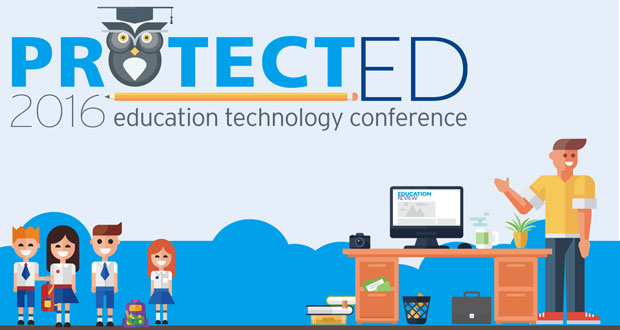With increased focus on schools' duty of care to students and parents, now is the time for schools to demonstrate that good information governance is an ongoing priority. Students and their parents must know precisely how their personal information is collected, how it is used, for what purpose and by whom.
PROGRAM
| 0745 – 0845 | SPONSOR BREAKFAST | AAIC |
| 0830 – 0900 | REGISTRATION OPEN | |
| 0900 – 0905 | CONFERENCE OPEN | Patrick Avenell APN Educational Media |
| 0905 – 1030 | PRIVACY LAW IN SCHOOLS This session will provide an introduction to your legal responsibilities to protect the privacy of both your students and staff. Whether your school is public or private, leading privacy consultant and trainer Anna Johnston of Salinger Privacy will guide you through the privacy principles that apply to you, and offer examples of how they apply in practice, within the school setting. |
Anna Johnston Director Salinger Privacy |
| 1030 – 1050 | MORNING TEA | |
| 1050 – 1150 | SEX, LOVE AND YOUNG PEOPLE IN THE SOCIAL MEDIA AGE What do young people have to say about why they share explicit images with each other, what they think the risks are and what they want to know more about when it comes to intimate relationships? In this talk, Professor Lumby will report back on extensive research she did in Australian high schools with 13-17 year olds and discuss what they told her about growing up in the online and social media era. She will also draw on her expertise in sex and ethics education to outline a best practice education approach to keeping young people safe and well-informed. |
Catharine Lumby Professor of Media Macquarie University |
| 1150 - 1250 | RESPONDING TO ONLINE BEHAVIOURS WITH CONFIDENCE What do the cyberbullying complaints received by the Office tell us about the behaviours teachers need to be alert to? The Office has received complaints for over 12 months and in this short time we have observed some trends and emerging behaviours. The knowledge we have gleaned will help you and your students. We will provide practical guidance and resources you can use in your schools including new resources that harness the power and influence of peer stories. As the national leader for the promotion of online safety for children, the Office of the Children’s eSafety Commissioner plays an important role in the removal of child sexual abuse material, the removal of serious cyberbullying from social media as well as technology facilitated abuse against women and young people. |
Andree Wright Acting e-Safety Commissioner Office of the e-safety Commissioner |
| 1250 – 1330 | LUNCH | |
| 1330 - 1415 | RECORD KEEPING IN SCHOOLS: NAVIGATING THE MINEFIELD Record keeping in schools is a veritable minefield. With conflicting legal and duty of care obligations, combined with multiple data management systems, it is little wonder that many schools struggle to implement effective policies and practices for the management and retention of information. This session will look at how schools can implement effective record keeping measures to meet these challenges. |
David Griffith Managing Director CompliSpace |
| 1415 - 1500 | THE VIRTUAL CLASSROOM Nick examines the different dimensions around security and privacy related in a controlled physical classroom vs a virtual classroom, offers strategies around learning in an uncontrolled environment and considers the future of the Australian virtual learning environment. |
Nick Stanley Managing Director Tribal Group |
| 1500 – 1520 | AFTERNOON TEA | |
| 1520 – 1620 | ThinkUKnow The ThinkUKnow team will cover issues relating to children and young peoples’ privacy and security online, their relationships with other users and their online reputation. It will provide insight into the devices young people are using, as well as the popular websites, apps and social networking sites they’re accessing. |
Daniela Fernandez & Peter Stein ThinkUKnow team |
| 1620 – 1655 | MEETING THE SECURITY CHALLENGE IN SCHOOLS: A CORE LEADERSHIP FUNCTION Schools are expected to be a safe and nurturing setting. The school setting is facing ongoing and dynamic security challenges. There are increasing concerns in school communities regarding extreme scenarios of armed offenders and even terrorism. However, there a 33 identified categories of everyday crime that can have an impact on a school and its community. Schools need to re-think the ways in which the traditional security risks and the ’new’ risks are managed. It’s not just about locks and cameras. |
Leon Harris Principal Consultant Harris Crime Prevention Services |
| 1650 – 1700 | CONFERENCE CLOSE | Patrick Avenell |
* Provisional program subject to change without notice at the discretion of the organiser
Please login below to view content or subscribe now.
 Education Review The latest in education news
Education Review The latest in education news

